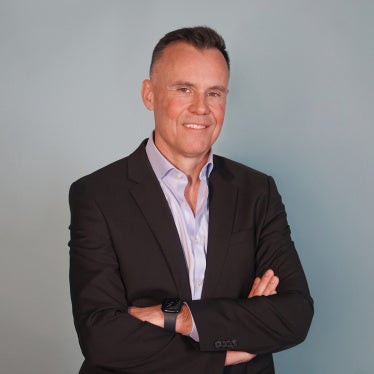To the outside world, the question might sound puzzling: How can the United Nations stop itself from supporting human rights abusers? Sadly, the issue is by no means theoretical. For many years, sometimes unknowingly and sometimes it seems because it chose to look the other way, the United Nations has provided assistance, money or logistical support to armies or police forces involved in abuses and serious human rights violations.
It all came to a head in 2009, when U.N. peacekeepers in eastern Democratic Republic of Congo carried out joint military operations with the Congolese army including providing food, fuel, transport and tactical support to army units engaged in combat against militias in the jungle. The goal was laudable, until it became clear that the support was also benefiting well-known human rights abusers in the army. Some of the U.N.-backed Congolese troops had engaged in rape, murder and pillaging, tarnishing the blue flag in the process.
Under pressure from civil society groups including Human Rights Watch, the U.N. tried to clean-up its act with a conditionality policy. Any unit of the Congolese army receiving support from the United Nations had to be carefully screened, and officers with a track record of grave human rights abuses weeded out.
Soon enough, and to Secretary General Ban Ki Moon’s credit, the pilot Congolese experiment was turned into an organization-wide policy, which was discreetly rolled out on a trial basis in the fall of 2011 under the official name Human Rights Due Diligence Policy on U.N. support to non-U.N. security forces.
The policy states that no U.N. entity should support, train or finance, even indirectly, any army or police force likely to engage in serious human rights violations. As common sense as the policy sounds, it doesn’t sit so easily with the realities facing parts of the U.N. machinery. Some, like the U.N. Development Program, have at times had to rely on repressive states to help people in need.
Six months after the roll out, limited steps have been taken to translate the courageous policy into action. In Somalia, the United Nations is still funneling millions of dollars to AMISOM, the African Union force, which has allegedly routinely disregarded civilian lives in its fight against Somali insurgents, with almost complete impunity. U.N. money is pouring into various programs in South Sudan, Libya, Côte d’Ivoire or Guinea, with little guarantee that some of it won’t end up benefiting the often abusive security forces of these countries.
Part of the problem is that the United Nations isn’t properly applying to its own blue helmets the new policy it seeks to impose on others, and as a result lacks credibility when confronting governments. Despite commendable efforts at U.N. headquarters, countries contributing troops to U.N. peacekeeping operations, including some whose armies have less than stellar rights records, still occasionally deploy rights abusers under the U.N. flag.
In March, three Pakistani officers in the U.N. mission in Haiti were hastily court martialed in a case involving the repeated rape of a 14-year-old boy. The fact that the officers were reportedly held accountable and were flown home to face a year in jail and a loss of their military benefits represents progress on one level. In years past, they might have just been sent home. On the other hand, no information surfaced on the charges, the sentences, or compensation for the boy. And the sentence for repeated rape of a minor hardly reflects the gravity of the crime.
To be sure, the U.N. is confronting real life quandaries. In Somalia, if it refuses to finance AMISOM, no one will be left to fight Islamic insurgents and the country could descend into even worse chaos. In Congo, the conditionality policy helped the United Nations keep its hands clean, but it is only slowly having an effect on ending impunity.
The U.N. should certainly not claim the moral high ground and walk away from difficult situations at the expense of those at risk. A sensible implementation of the new policy could mean, in Somalia, deploying more U.N. human rights experts to monitor African Union troops and conditioning financial support on good behavior and accountability. In Congo, it could mean increased U.N. engagement to ensure that abusive Congolese commanders face justice.
For the world organization to demonstrate it’s serious about ending support to abusive forces, it should lead by example and adopt stringent standards for itself. The organization needs to aggressively implement its “due diligence” policy, properly fund it, and impose it where it counts – on the ground – even if it ruffles some feathers. The U.N. reputation is at stake, as much as the very mission its founders envisioned when they engraved in its charter to “reaffirm faith in fundamental human rights.”
Editor's note: Philippe Bolopion is the U.N. director at Human Rights Watch and the former U.N. correspondent for Le Monde.







